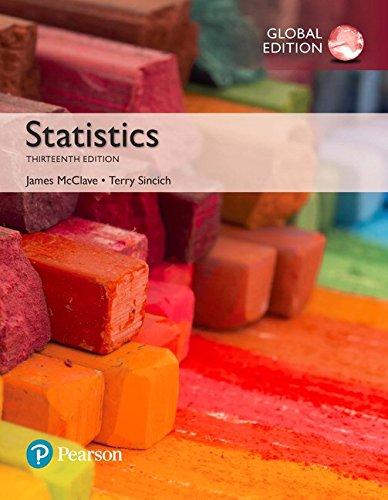IQ and mental deficiency. A person is diagnosed with a mental deficiency if, before the age of
Question:
IQ and mental deficiency. A person is diagnosed with a mental deficiency if, before the age of 18, his/her score on a standard IQ test is no higher than 70 (two standard deviations below the mean of 100). Researchers at Cornell and West Virginia Universities examined the impact of rising IQ scores on diagnoses of mental deficiency (MD)
(American Psychologist, Oct. 2003). IQ data were collected from different school districts across the United States, and the students were tested with either the Wechsler Intelligence Scale for Children—Revised (WISC-R) or the Wechsler Intelligence Scale for Children—Third Revision
(WISC-III) IQ tests. The researchers focused on those students with IQs just above the mental deficiency cutoff
(between 70 and 85), based on the original IQ test. These
“borderline” MD students were then retested one year later with one of the IQ tests. The accompanying table gives the number of students diagnosed with mental deficiency on the basis of the retest. Conduct a chi-square test for independence to determine whether the proportion of students diagnosed with MD depends on the IQ test/retest method. Use a = .01.
Test/Retest Diagnosed with MD Above MD Cutoff IQ Total WISC-R / WISC-R 25 167 192 WISC-R / WISC-III 54 103 157 WISC-III / WISC-III 36 141 177
Step by Step Answer:






